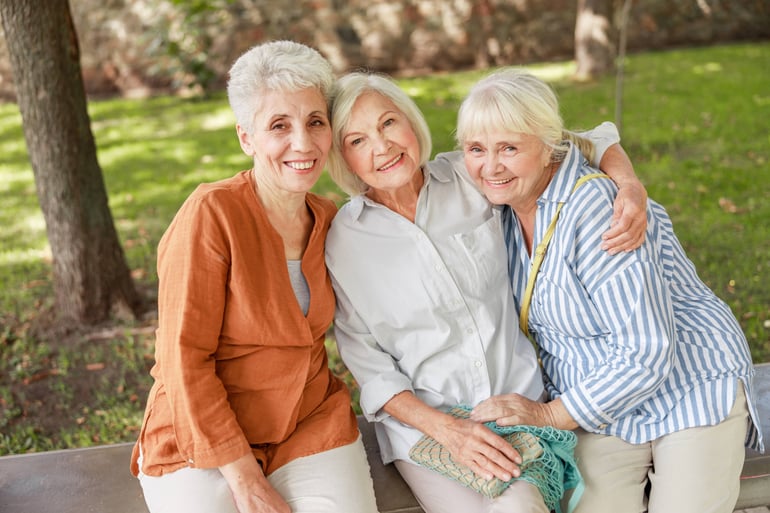 Disclaimer: Remember to wear masks or face coverings in indoor public spaces, crowded outdoor events like concerts, and small outdoor gatherings attended by unvaccinated individuals.
Disclaimer: Remember to wear masks or face coverings in indoor public spaces, crowded outdoor events like concerts, and small outdoor gatherings attended by unvaccinated individuals.
Now that Deupree House residents have been vaccinated there's a feeling that we've turned a corner. With this extra layer of protection, most residents feel safe enough to venture out and socialize with others — even travel domestically!
However, if the community reopening has you feeling overwhelmed, you’re not alone. Many of us are feeling the effects of a year spent sheltering in place. Whether you’re not sure how to remind your loved ones to social distance or just need some help reacclimating to social settings, there are plenty of tips that will help.
Let’s explore some ways to ease your stress, practice self-care, and live purposefully!
Top 5 Tips for Social Seniors
1. Set Your Boundaries
It may take time to get used to being in social settings again. Giving hugs, scheduling outings, these once-normal activities might feel foreign to you now, and that’s okay! Just remember: everyone is in the same boat. Set your boundaries of what is okay to you and what is not — and feel good about it.
If you’re not ready to dine indoors yet, be confident enough to tell your friends and family that. Calmly explain what you are comfortable with and tell them how you’d like to proceed. You could even offer an alternative, like dining outdoors or having a virtual lunch club over FaceTime.
2. Ease Into Social Settings
When you feel at ease doing so, try gradually going back into social settings or public spaces.
For example, you may want to meet with a few friends outdoors for an afternoon of chatting. You may feel better with the fresh air to help minimize risk. You don’t have to give up masks, either. Even though there is not currently a mask mandate in Ohio, that doesn’t mean you should stop using them or asking your friends to do so as well.
You might also try going for a walk at a local park or visiting a store you like. These simple but fun activities can help you ease into social situations in a meaningful and safe manner.
3. Sharpen Your Social Skills
It may seem silly that you need help knowing how to talk to friends and others after all of these years. Yet, after spending so much time sheltering in place and social distancing, it’s easy to forget those all-important social skills. Here are a few tips that may help you:
- Even if it feels strange, keep talking. The more you communicate over the phone, in person, and through video, the better those skills will come back and feel more normal.
- Practice listening skills. To do that, ask people open-ended questions about them and their situation. Try to pay attention to what they are saying.
- During conversations, embrace the elephant in the room. Don’t try to avoid the awkwardness, but instead talk about how strange it feels to be having this conversation.
- Be friendly. Recognize that other people are feeling strange, too. Give them the tools and support they need to feel more at ease. That will, in turn, help you, too.
- Take it slow. There’s no need to embrace a big social situation as your first experience. Instead, do small things first, with one or two other people.
4. Practice Compassion for Others, Too
Life has likely changed significantly for many of the people you haven’t talked to or seen in some time. They’ve lost loved ones, experienced significant shifts in their lives, and may be battling new health concerns. Remember, too, that other people are anxious and you may not know everything that’s going on in their mind or body.
Practice being compassionate. If they don’t have social energy – or the ability to get out and engage as often as you do – realize that’s okay right now. Let them take breaks. Know your social limits and recognize that they may be different for someone else.
5. Recognize the Need for Help
If you’re not feeling as confident as you should when it comes to social engagement, reach out to professionals who can offer advice and guidance. Look for a group therapy session that may help you work through some of that stress.
Social engagement plays a crucial role in senior wellness. We at Deupree House are so glad residents can finally connect with their neighbors and loved ones in person. However, there’s still work to be done. The pandemic isn’t over, and we all still need to take precautions to protect ourselves and our community. When you are ready to be sociable in small groups, though, these tips will help you socialize with confidence!












